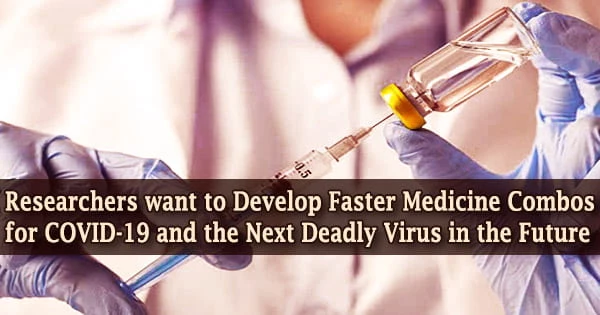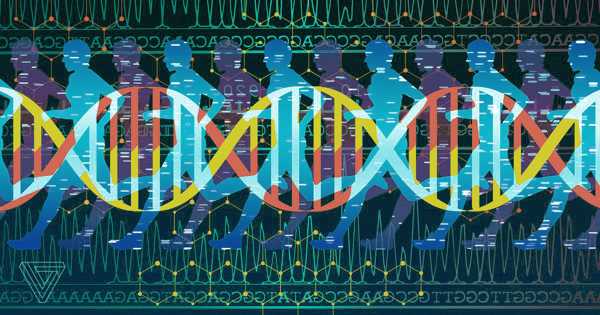An international group of scientists has devised a strategy for generating medicine mixtures faster to combat the COVID-19 pandemic. The pipeline could hasten the development of new and better medicines that people who have recently been diagnosed or exposed can use at home to avoid major illnesses.
According to the researchers, the “proactive medication development method” could also serve as the first line of defense against future pandemics. When a hazardous new infection, such as a coronavirus or another pathogen, emerges, scientists will be ready with an arsenal of medications that can be promptly brought into human trials.
The goal: Make effective treatments available in weeks, not months or years.
“We need to proactively develop drug cocktails against virus families as a whole for example, all coronaviruses to be ready on day one if a new virus or variant emerges. The cocktail should be low cost, easy to transport and distribute, and easy to self-administer therefore available to people across the globe,” said researcher Judith M. White, Ph.D., a professor emeritus at the University of Virginia School of Medicine.
“We hope that this concept of ‘smart drug cocktails’ smart because of the choice of drugs for testing and computer modeling of their effectiveness in humans will be the basis for a robust, coordinated effort against coronaviruses and other pathogenic viruses, such as Zika and Lassa fever viruses, just to name a few.”
Fast, Safe, Effective Pandemic Response
White of UVA’s Departments of Cell Biology and Microbiology, Immunology, and Cancer Biology, as well as colleagues from the University of Washington and the Fred Hutchinson Cancer Research Center, the University of Maryland, and MRI Global, as well as collaborators from Estonia, Finland, and Norway, developed the new strategy.
We need to proactively develop drug cocktails against virus families as a whole for example, all coronaviruses to be ready on day one if a new virus or variant emerges. The cocktail should be low cost, easy to transport and distribute, and easy to self-administer therefore available to people across the globe.
Judith M. White
Prioritizing the development of drug cocktail therapies, which include two or more medicines, would minimize the strain on healthcare systems and assist prevent disease spread by reducing a virus’ ability to adapt to its hosts, according to the researchers. The employment of a combined strategy to treat infections like HIV is already commonplace.
The researchers propose a five-point strategy to speed up the discovery and administration of successful medication combinations:
- Prioritize medications that people can take at home after exposure or when symptoms first emerge, either by mouth or inhalation.
- To limit the risk of viruses becoming medication resistance, focus on therapeutic combinations rather than single drugs.
- Prioritize drugs that have already been approved or are in advanced clinical trials to ensure their safety and effectiveness as fast as possible.
- Concentrate on medications that can be administered to humans in low enough dosages to have antiviral effects without causing hazardous side effects.
- Use advanced computer models to identify useful drug combinations and speed development.
Joshua T. Schiffer, MD, of Fred Hutch, constructed a model to analyze the potential clinical effectiveness of medication pairings for treating COVID-19 to demonstrate the usefulness of computer modeling for this purpose.
According to the experts, combining medications could result in more successful therapies than using separate drugs. They claim that identifying pharmaceuticals with this form of “synergy” might turn two medicines with just minor benefits into a powerful treatment.
“Models that incorporate both the properties of the drugs and the biology of the virus spreading against an immune response can be used to identify the best way to dose promising treatments,” Schiffer said. “These models suggest strategically combining drugs may add substantial benefit.”
The researchers note that superior COVID-19 treatments are a supplement to existing techniques, not a replacement for immunization. However, they believe this technique will improve outcomes for individuals who catch COVID-19 or the next hazardous virus on the horizon.
“Having easily deployable, easily administered, inexpensive drug cocktails on the shelf when a new virus outbreak occurs would buy time from virus discovery to development and roll-out of sequence-dependent countermeasures like vaccines and designer drugs, and could therefore blunt the initial stages of an epidemic,” White said.
Findings Published
In a peer-reviewed publication published in the scientific journal mBio, the researchers outlined their therapeutic development process. The research team consisted of White, Schiffer, Rachel A. Bender Ignacio, Shuang Xu, Denis Kainov, Aleksandr Ianevski, Tero Aittokallio, Matthew Frieman, Gene G. Olinger and Stephen J. Polyak.
















